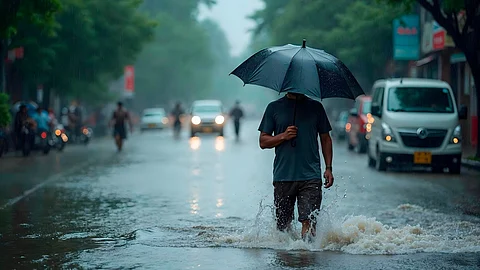Monsoon arrives as relief from scorching heat, but with the underlying menace to do damage to crores of lives. The Indian Medical Association (IMA) has also issued a red alert with an appeal referring to the exigency of addressing the health problems that occur during this period of utmost importance.
Climate change brings new threats to health
The most recent weather pattern fluctuations have presented unforeseen health challenges for which the healthcare system was not prepared. The IMA describes a concurrent trend: infectious diseases that had been previously controlled are resurging, and new and entirely new health threats are emerging.
Medical professionals are particularly vexed by cholera's return, a disease that others had believed was eliminated from the region. This is an unpleasant reminder that gains in public health need to be matched with ongoing vigilance and adaptability.
Water and food safety: The foundation for prevention
Prevention of monsoon-borne diseases is based on two fundamental areas that run through every household. Clean water for drinking and clean food are the key elements to the prevention of the spread of diseases.
The IMA emphasizes that communities should prioritize personal and environmental hygiene practices. Simple practices such as good hand washing, food storage, and water purification can go a long way in preventing the spread of contagious diseases.
Targeting Disease Sources
As opposed to addressing symptoms alone, medical professionals promote eradicating the causative factors of disease spread. Source destruction, which targets the elimination of breeding sites for vectors carrying disease and infected environments that support the development of pathogens, is such a method.


